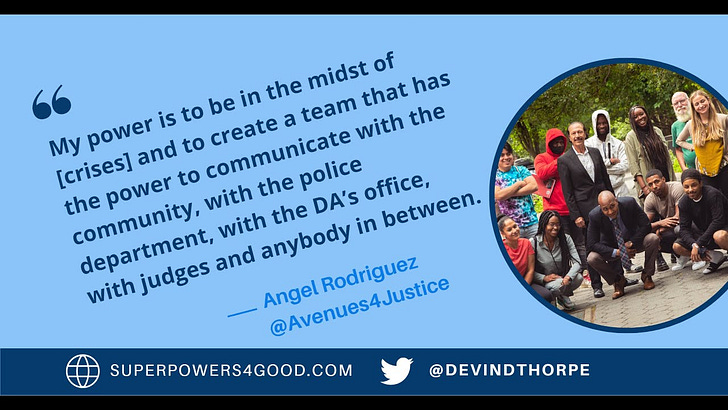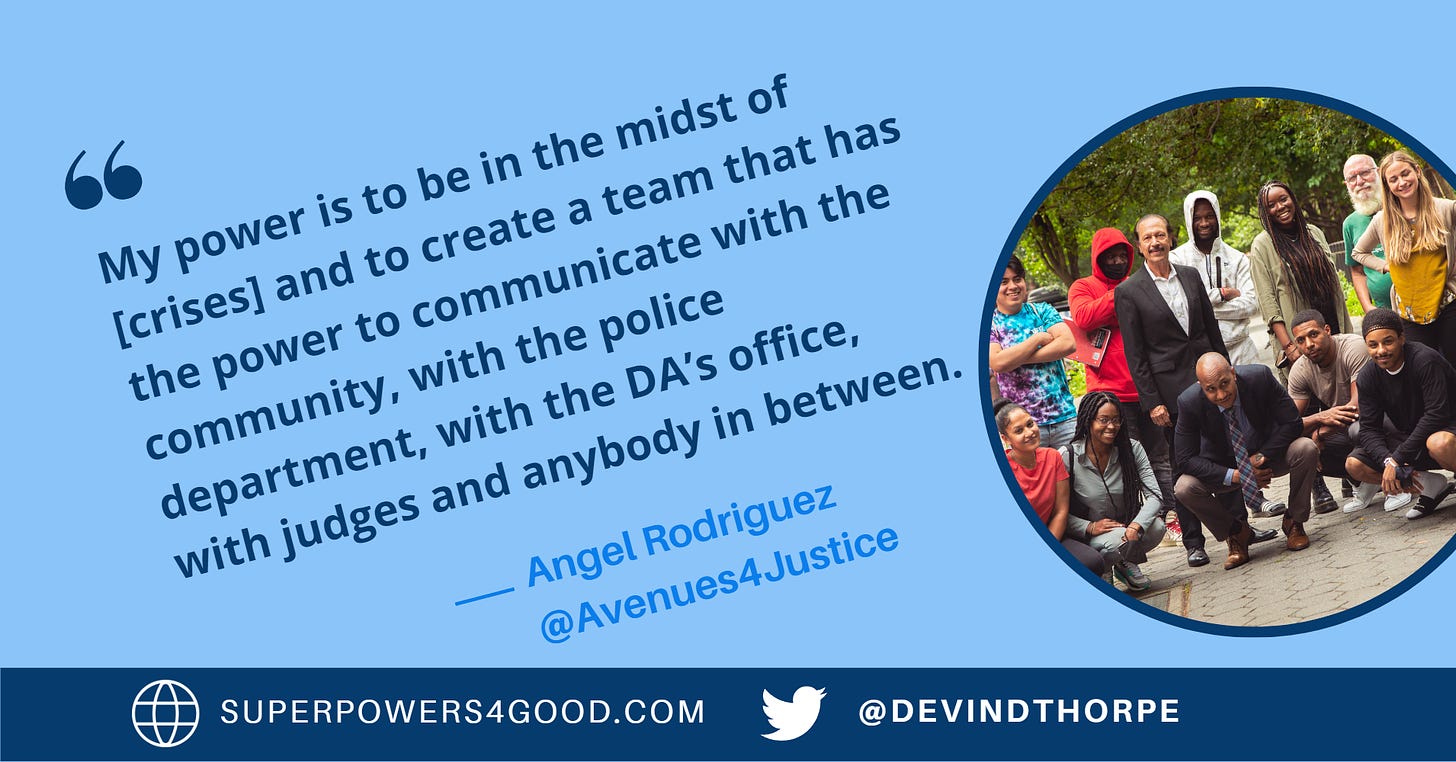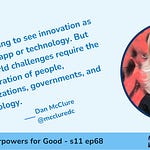Devin: What do you see as your superpower?
Angel: My power is to be in the midst of [crises] and to create a team that has the power to communicate with the community, with the police department, with the DA’s office, with judges and anybody in between.
Over the past four-plus decades, Angel Rodriguez’s Avenues for Justice (AFJ) has helped thousands of young people caught up in the justice system avoid, by my estimate, 10,000 years of incarceration. Instead, the vast majority of people who participated in the program went on to lead productive, law-abiding lives.
Those avoided years may have saved the government as much as $5 billion, based on my math.
Organized in the 1970s, after Angel began informally helping young, personal friends and acquaintances find ways to escape the gravitational pull of the criminal justice system, AFJ was among the first second-chance programs providing alternatives to incarceration. Typically, successful participants can avoid a criminal record.
Today, AFJ serves about 400 BIPOC people ranging from 13 to 24 in New York City’s Lower East Side and Harlem. The program provides a range of services that, for some, includes housing, job training, help finding employment, education and mental health wellness. Support includes staff joining the youth as they appear before the judge to advocate for a second chance. Only 6 percent are reconvicted of a new crime within three years.
The program is shockingly affordable when compared with incarceration. A year at Rikers Island costs the City about $500,000 per inmate. AFJ’s program costs a bit over 1 percent of that mark at $5,750.
Now 75 years old, Angel remains actively engaged in leading AFJ. He points out that the program began in the 70s, helping kids who were arrested with friends who were the protagonists in a crime. A teenager could be accused of “acting in concert” and tried for the same offense as a friend or acquaintance, including crimes like gun possession.
By helping the courts see a responsible adult intervening in a child’s life to support them and help them stay out of trouble, courts began giving kids an alternative to incarceration.
In New York and many other jurisdictions, children as young as 14 can be tried as adults for serious crimes. One of AFJ’s strategies is to have these kids adjudicated as “youthful offenders,” allowing them to be tried in family court where there is greater flexibility.
Over the decades, Angel has developed a superpower he describes as creating a “team that has the power to communicate with the community, with the police department, with the DA’s office, with judges and anybody in between.”
How to Develop Powerful Team Building As a Superpower
Imagine the difficulty of building a team that can effectively communicate with an at-risk teenager caught up in the criminal justice system, their parents, the police, the prosecutors and the judge involved in the case. Each has a jargon, an objective and a perspective different from all the others. It is quite an accomplishment to build that kind of team.
The impacts are extraordinary.
Angel shared the story of Luis Concepcion, who was charged with mugging at age 16. He—and his parents—were involved with dealing drugs. Angel got the call and got involved, convincing the court to give the kid, who faced seven years in prison, a second chance under Angel’s supervision.
Luis went to live at the AFJ center and turned his life around, earning a high school diploma. With a tough judge involved, Angel had to appear in court with Luis every 20 to 30 days until the judge agreed to accept a plea that would keep him out of prison.
So, Luis decided he wanted to go into the Marine Corps but was ineligible because he was on probation. Angel went back to court with Luis to convince the judge to terminate the probation so he would be eligible to join the Marines. It worked!
Luis signed up for four years, ultimately staying in the service for 20. He became an officer. Angel describes attending his retirement ceremony as “one of my proudest moments.” Luis, now 42, remains close to Angel and AFJ.
You can see from this story the power of team building across and among groups and individuals who often see others as opponents. By following Angel’s example, you can make team building a superpower that enables you to do more good in the world.























This New York Nonprofit Has Helped Young People Avoid 10,000 Years of Incarceration